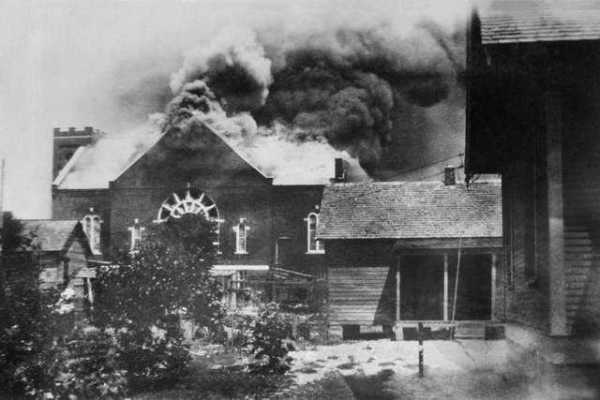
Washington DC - The US Department of Justice (DOJ) has ruled out prosecution in the case of the 1921 Tulsa Race Massacre as the last two living survivors continue their decades-long fight for truth and .
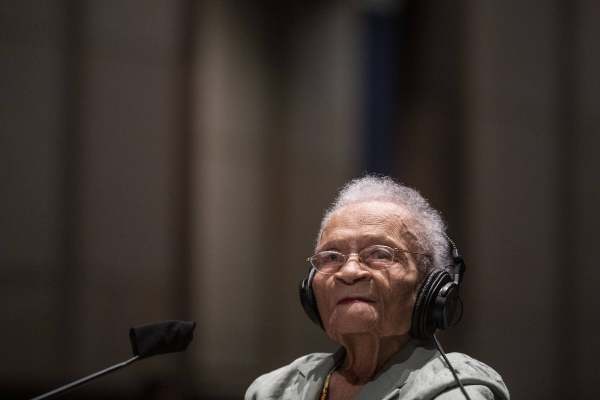 Tulsa Race Massacre survivor Viola Ford Fletcher appears to testify before the House Committee on the Judiciary on May 19, 2021. © IMAGO / ZUMA Press Wire
Tulsa Race Massacre survivor Viola Ford Fletcher appears to testify before the House Committee on the Judiciary on May 19, 2021. © IMAGO / ZUMA Press Wire
The – released Friday, just days before Donald Trump retakes the White House – details the horrors of May 31 and June 1, 1921, when a mob launched a brutal white-supremacist attack on Tulsa's Greenwood District, known as Black Wall Street.
The DOJ announced the investigation into the massacre last September following survivors and descendants' under the Emmett Till Unsolved Civil Rights Crimes Act. These calls were amplified after the Oklahoma Supreme Court in June brought by survivors Viola Ford Fletcher and Lessie Benningfield Randle, both 110 years old.
The new report describes the invasion of Greenwood as an attack "so systematic and coordinated that it transcended mere mob violence." It says that "as many as 10,000 white Tulsans" – including law enforcement officers – participated in the killing spree, which left at least 300 people dead and 35 square blocks of the city in ruins. Property damage is estimated to amount to over $32 million in December 2024 dollars.
The Tulsa Police Department, Sheriff William McCullough, the National Guard, Mayor T.D. Evans, the KKK, and other city officials and business interests are named as culpable entities and individuals in the DOJ report.
In the aftermath of the assault, Black Tulsans were confined to concentration camps guarded by armed white men. Black men were charged with inciting the violence, while the FBI sought to cover up the racist nature of the crimes.
"The Tulsa Race Massacre stands out as a civil rights crime unique in its magnitude, barbarity, racist hostility and its utter annihilation of a thriving Black community," Assistant Attorney General Kristen Clarke of the DOJ's Civil Rights Division said in a statement.
"Until this day, the Justice Department has not spoken publicly about this race massacre or officially accounted for the horrific events that transpired in Tulsa. This report breaks that silence by rigorous examination and a full accounting of one of the darkest episodes of our nation’s past."
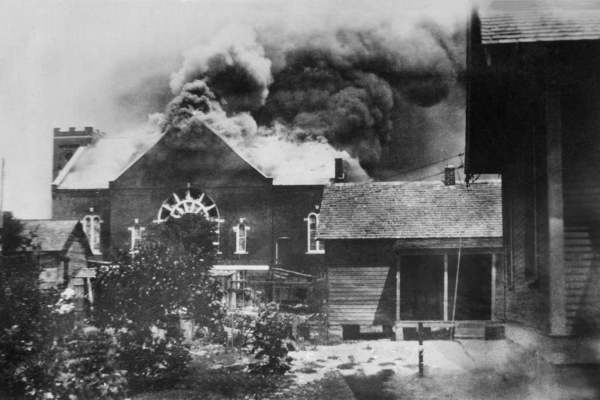 Enormous plumes of smoke rise from a burned church in the Greenwood District during the 1921 Tulsa Race Massacre. © IMAGO / glasshouseimages
Enormous plumes of smoke rise from a burned church in the Greenwood District during the 1921 Tulsa Race Massacre. © IMAGO / glasshouseimages
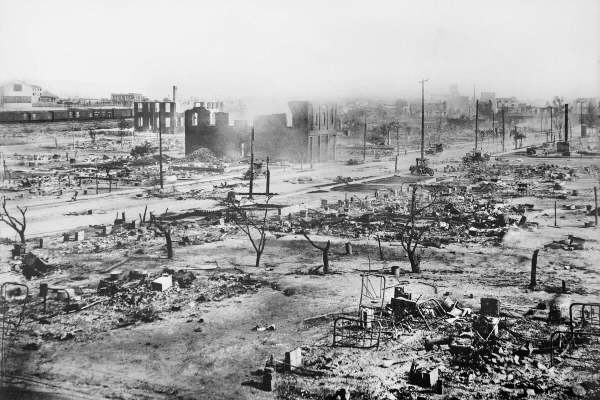 Tulsa's Greenwood District lies in ruins in the aftermath of the 1921 Tulsa Race Massacre. © IMAGO / glasshouseimages DOJ claims prosecution is "now impossible"
Tulsa's Greenwood District lies in ruins in the aftermath of the 1921 Tulsa Race Massacre. © IMAGO / glasshouseimages DOJ claims prosecution is "now impossible"
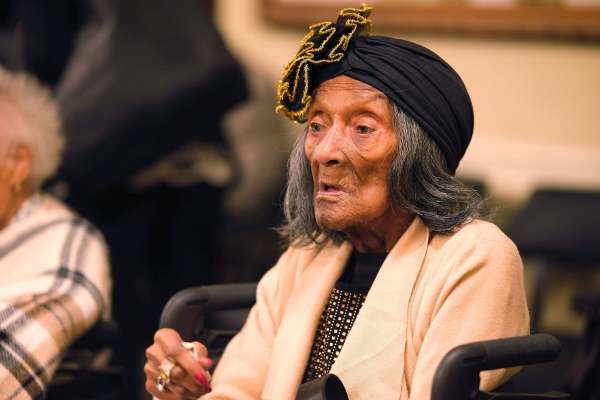 Tulsa Race Massacre survivor Lessie Benningfield Randle is pictured during a House General Government Committee meeting at the Oklahoma State Capitol on October 5, 2023. © IMAGO / Imagn Images
Tulsa Race Massacre survivor Lessie Benningfield Randle is pictured during a House General Government Committee meeting at the Oklahoma State Capitol on October 5, 2023. © IMAGO / Imagn Images
After laying out the harms of the Tulsa Race Massacre, the DOJ concludes that prosecuting any responsible individuals or entities is not possible.
"The events of May 31 and June 1, 1921, were horrific. If they happened today, the federal government would have authority to investigate all participants (those employed by the city and those who were private residents of Tulsa) and to charge anyone who committed or conspired to commit any of the offenses described above," the report states.
"Because the statute of limitations on all federal offenses has expired and because of the death of perpetrators and the limitations imposed by the Confrontation Clause, federal prosecution is not possible in this instance."
The DOJ acknowledged that federal prosecutors declined to pursue legal action at the time of the crimes, despite claims for redress and lawsuits against local authorities submitted by survivors in the immediate aftermath of their community's destruction. The DOJ said it could not locate any opinion explaining the reason for the dismissals.
"It may be that federal prosecutors considered filing charges and, after consideration, did not do so for reasons that would be understandable if we had a record of the decision," the report suggests.
The DOJ report did not provide any recommendations for how the Greenwood community might move forward with their , nor did it appear to consider treating the massacre as a crime against humanity, which would involve no statute of limitations.